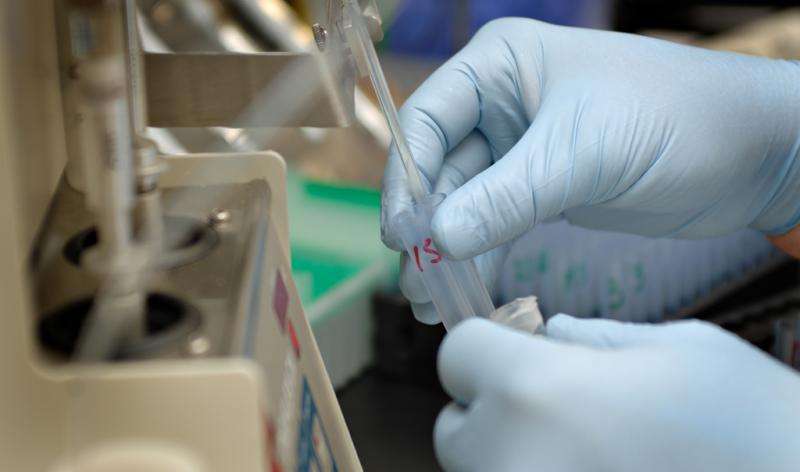Fighting mucosal bacteria in the battle against cystic fibrosis

Michael Maiden, a Michigan State University College of Osteopathic Medicine student and doctoral candidate in the Department of Microbiology and Molecular Genetics, was recently awarded a traineeship from the Cystic Fibrosis Foundation to help pursue his research of the disease.
Cystic fibrosis, or CF, is a genetic disease that causes a buildup of mucus in the lungs, pancreas and other organs. Bacteria can grow in this mucus and over time, prove deadly. The biggest problem for CF patients is the mucosal bacteria, which form aggregates of cells that bind together to create a substance that surrounds and protects the harmful bacteria. This often means lifelong infection for the patient.
Existing treatments can reduce the bacterial population, but the infection almost always returns, due to a small portion of the bacterial cells, aptly named persisters. The cycle repeats, each time causing further organ damage, until eventually there is not enough tissue left to function.
Maiden and his microbiology professor Christopher Waters believe that they can target and destroy persister cells using a combination of two existing drugs working together in a new way.
They have found that combining triclosan, a commonly used antimicrobial found in such products as toothpaste, soaps and detergents, enhances the persister-killing ability of tobramycin, an antibiotic commonly used to treat CF bacterial infections.
The initial test results have been promising. The researchers found that compared to tobramycin treatment alone, adding triclosan caused a 100-times reduction in persister cells after six hours and after 24 hours, showed near or complete eradication of the cells. Not only did the combination treatment kill all of the persister cells, it worked on every clinical sample tested in the MSU Cystic Fibrosis Clinic, including a tobramycin-resistant strain.
Maiden said the next step is to expand current animal studies. He is optimistic that the combination treatment will again prove to be more effective than tobramycin alone.
"If we are able to show in vivo efficacy, that would be the next step to pharmaceutical companies picking it up," Maiden said.
He hopes that his research will lead to better treatment options and improved treatment outcomes for CF patients. It may also have implications for other infections caused by mucosal bacteria, including chronic diabetic wounds, dental cavities and catheters.
Provided by Michigan State University



















